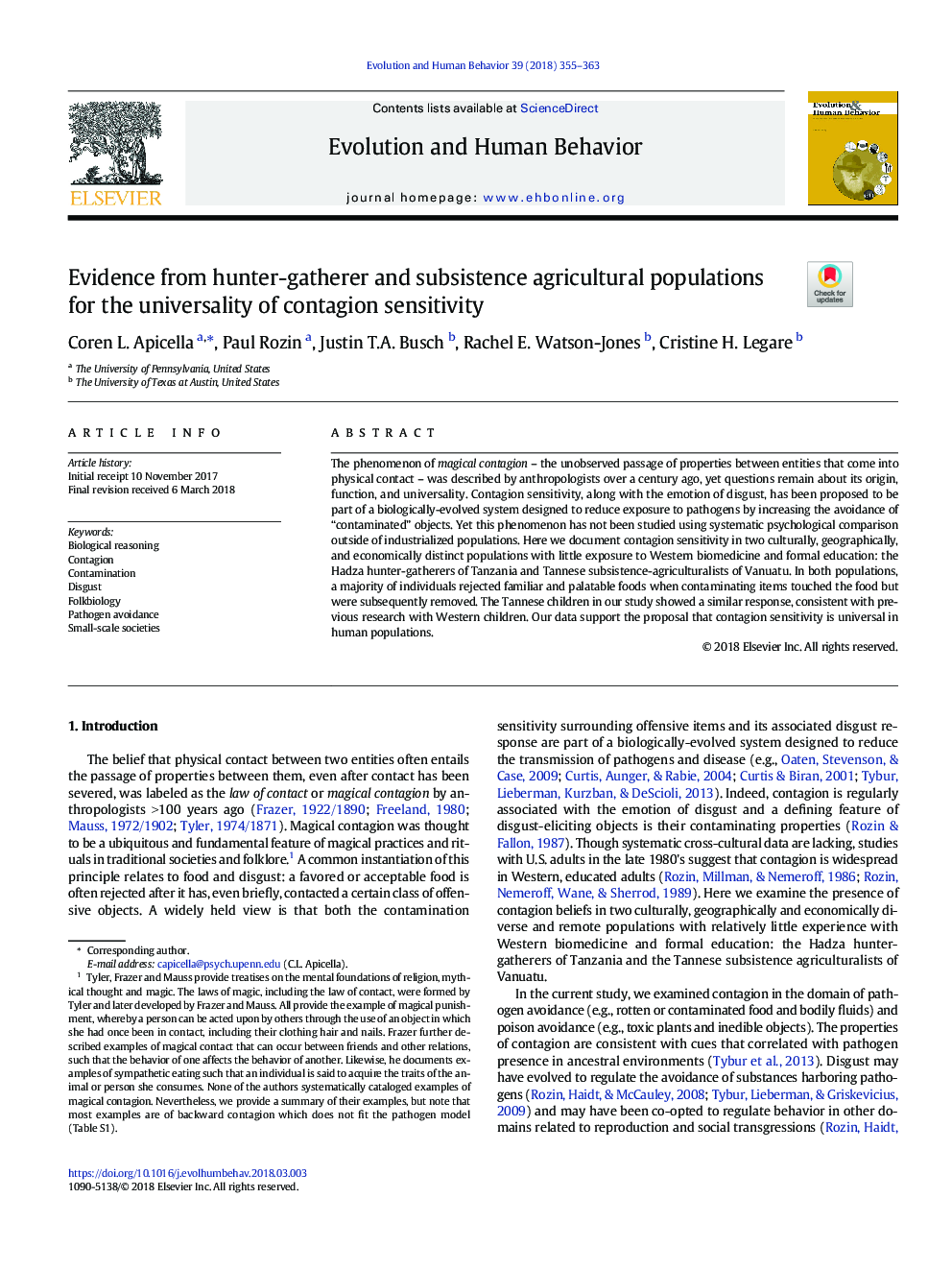| کد مقاله | کد نشریه | سال انتشار | مقاله انگلیسی | نسخه تمام متن |
|---|---|---|---|---|
| 7316330 | 1475507 | 2018 | 9 صفحه PDF | دانلود رایگان |
عنوان انگلیسی مقاله ISI
Evidence from hunter-gatherer and subsistence agricultural populations for the universality of contagion sensitivity
ترجمه فارسی عنوان
شواهد حاصل از جمع آوری شکارچی و جمعیت های محیط زیست در زمینه جهانی بودن حساسیت به بیماری
دانلود مقاله + سفارش ترجمه
دانلود مقاله ISI انگلیسی
رایگان برای ایرانیان
موضوعات مرتبط
علوم زیستی و بیوفناوری
علوم کشاورزی و بیولوژیک
بوم شناسی، تکامل، رفتار و سامانه شناسی
چکیده انگلیسی
The phenomenon of magical contagion - the unobserved passage of properties between entities that come into physical contact - was described by anthropologists over a century ago, yet questions remain about its origin, function, and universality. Contagion sensitivity, along with the emotion of disgust, has been proposed to be part of a biologically-evolved system designed to reduce exposure to pathogens by increasing the avoidance of “contaminated” objects. Yet this phenomenon has not been studied using systematic psychological comparison outside of industrialized populations. Here we document contagion sensitivity in two culturally, geographically, and economically distinct populations with little exposure to Western biomedicine and formal education: the Hadza hunter-gatherers of Tanzania and Tannese subsistence-agriculturalists of Vanuatu. In both populations, a majority of individuals rejected familiar and palatable foods when contaminating items touched the food but were subsequently removed. The Tannese children in our study showed a similar response, consistent with previous research with Western children. Our data support the proposal that contagion sensitivity is universal in human populations.
ناشر
Database: Elsevier - ScienceDirect (ساینس دایرکت)
Journal: Evolution and Human Behavior - Volume 39, Issue 3, May 2018, Pages 355-363
Journal: Evolution and Human Behavior - Volume 39, Issue 3, May 2018, Pages 355-363
نویسندگان
Coren L. Apicella, Paul Rozin, Justin T.A. Busch, Rachel E. Watson-Jones, Cristine H. Legare,
